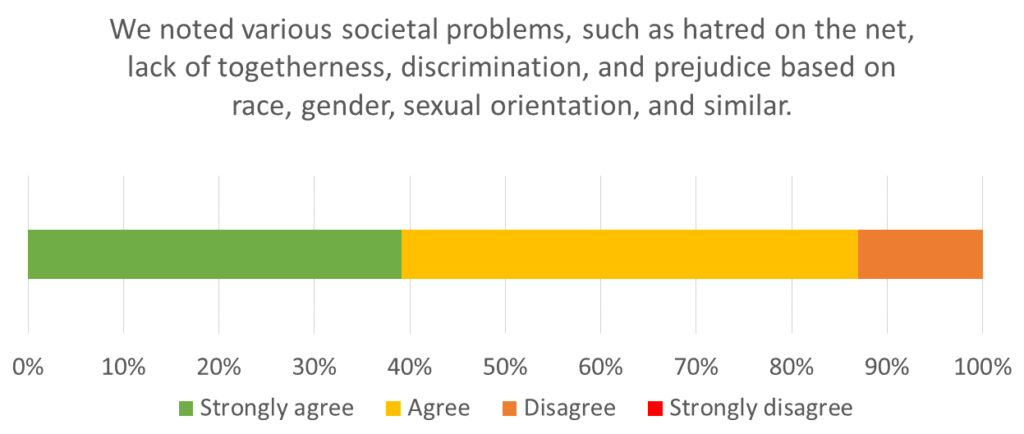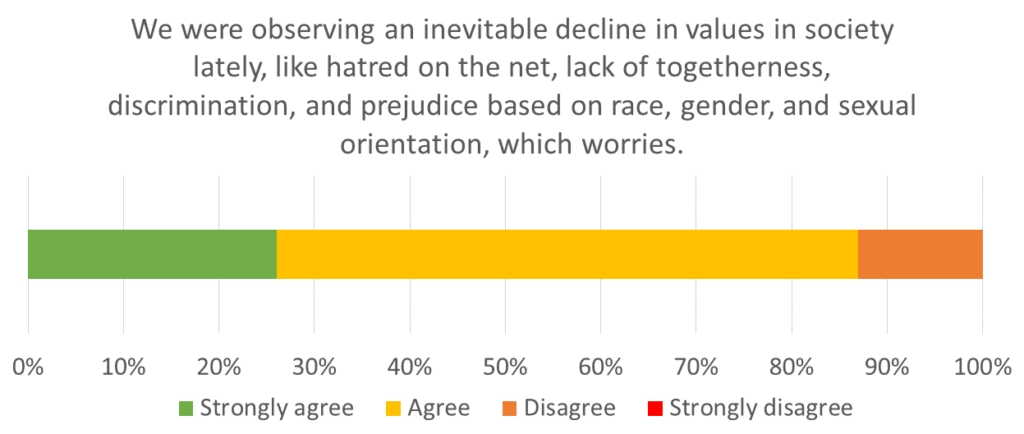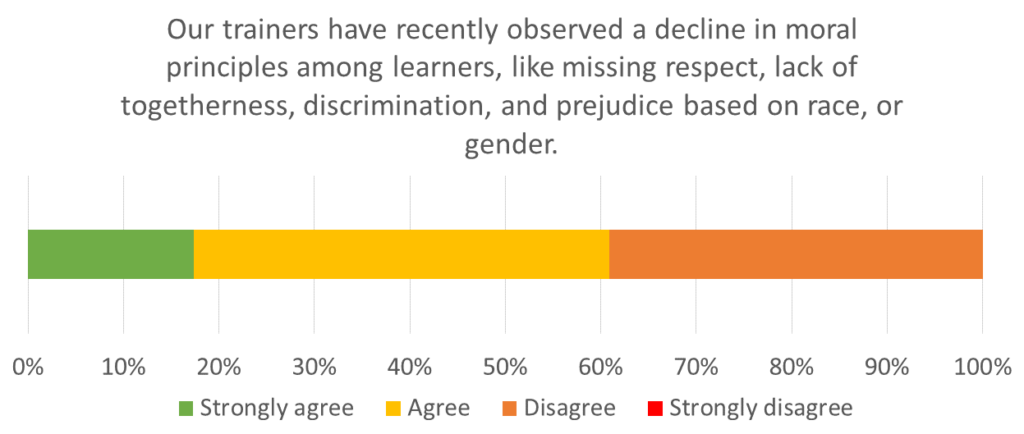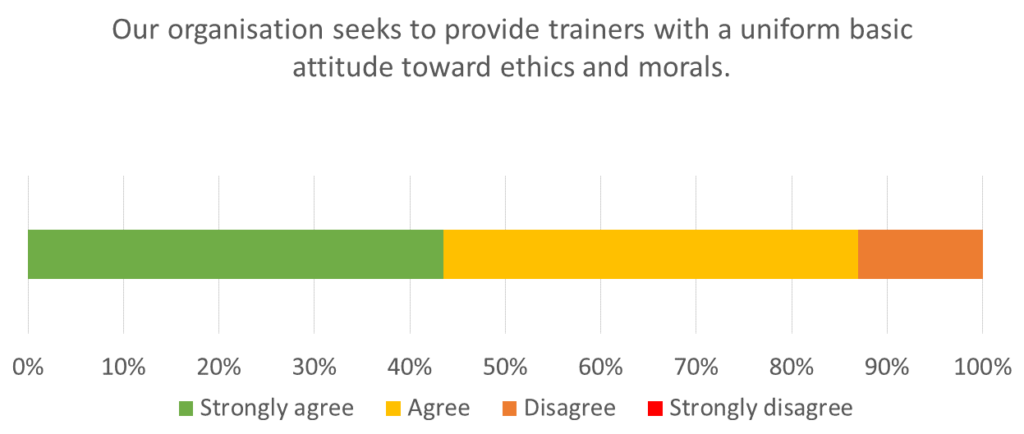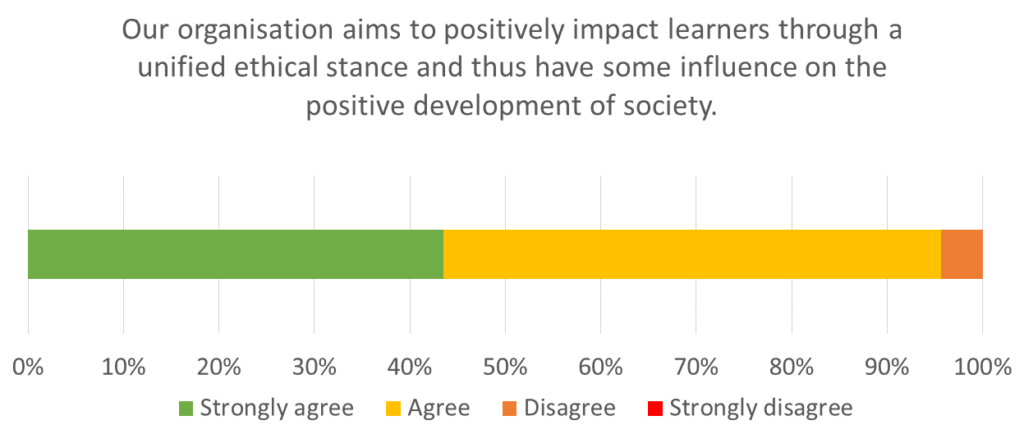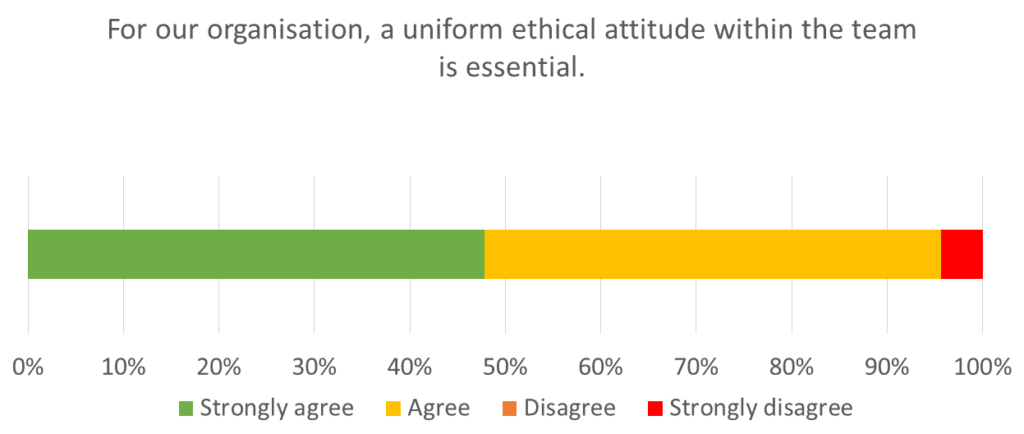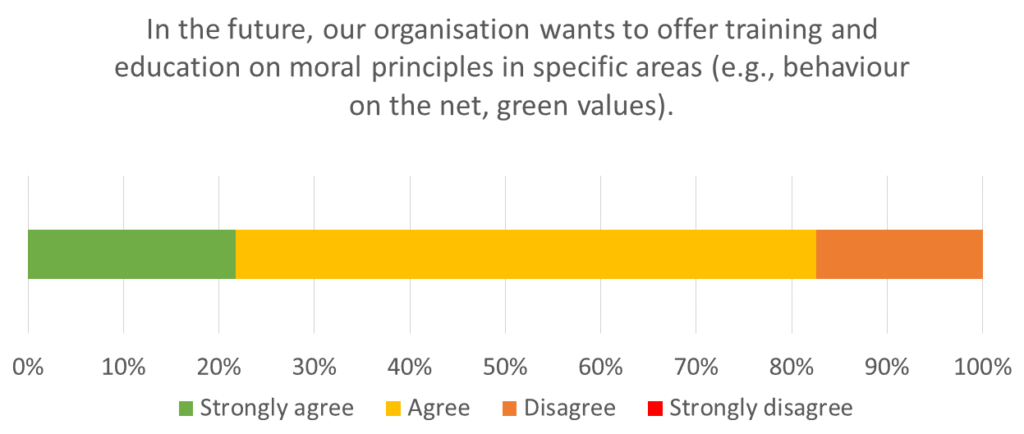One of the most notable changes is the rise of hatred and bigotry on the internet. The anonymity and distance provided by the internet have enabled individuals to express harmful opinions and engage in abusive behavior without fear of consequence. This has led to an increase in hate speech, cyberbullying, and harassment, particularly targeted at marginalized communities based on their race, gender, sexual orientation, and other identity factors.

Another change in ethical norms can be seen in the lack of togetherness and community that exists in many societies today. The increased use of technology has led to a more individualistic and fragmented society, where people are less likely to engage in face-to-face interactions and form close relationships. This has contributed to a decline in empathy and a decrease in social support networks, which can further exacerbate issues such as discrimination and prejudice.

Discrimination and prejudice based on race, gender, sexual orientation, and other identity factors remain prevalent in many societies. Despite advances in equality and human rights, many individuals continue to experience discrimination, bias, and stigma based on their identity. This can lead to social and economic inequality and can have a profound impact on the well-being and opportunities available to marginalized communities.
Influence of COVID-19

The COVID-19 pandemic has had a profound impact on society and has brought many ethical challenges to the forefront. In terms of hatred on the net, the pandemic has led to a significant increase in misinformation and conspiracy theories, which have fueled further division and mistrust among individuals and communities. This has contributed to the spread of hate speech and online harassment, particularly targeting marginalized groups, such as those based on race, gender, and sexual orientation.
In terms of lack of togetherness, the pandemic has resulted in social distancing measures and lockdowns that have limited face-to-face interactions and increased feelings of loneliness and isolation. This has highlighted the importance of community and social support, and has also led to increased efforts to maintain connections through virtual means. However, it has also revealed the challenges of digital communication and the limitations of virtual interactions in fostering meaningful relationships.
Discrimination and prejudice have also been amplified during the pandemic. Marginalized communities, such as those based on race and ethnicity, have been disproportionately affected by the virus, leading to further disparities in health outcomes and access to resources. Additionally, the pandemic has led to increased xenophobia and anti-immigrant sentiments, particularly aimed at those perceived as being carriers of the virus.
The case studies
The EBI has undertaken a Case study “About Ethical Values” at two different levels:
(1) European Adult Education Organisations
The EBI undertook a survey among friendly educational institutions in the field of adult education in Europe. More than 40 organisations were contacted, and we received feedback from 23 of them (14 different European countries: Austria, Belgium, Croatia, Czech Republic, Greece, Hungary, Italy, Latvia, Malta, Netherlands, Portugal, Slovenia, and Spain). The results are visible in the following slideshow.
(2) Planning for a new project
During the last visit of Peter Mazohl, President of the EBI, to the University of Málaga, the plan was born to start a project on this topic. Together with 4 partners, the planning is currently underway. A survey of the future project partners showed a similar picture as in the case study with 23 European institutions).
Here you see the asked questions. Click on the open icon to see the graphic data evaluation.
Personal statements
Personal statements and specific feedback were appreciated and will be used in the further development of the project’s application. Here are interesting answers:
- Among our adult students, we only observe less interest in each other in recent times.
- People need the training to raise awareness of their behaviour, and green values
- Good values and ethics are the backbones of a healthy society
- All people need to raise awareness
Conclusion
The ethical landscape of society has changed significantly recently, with the rise of digital technologies having a particularly pronounced impact. However, despite these challenges, it is important that individuals and communities work together to promote equality, empathy, and respect for all. This can be achieved through education, community-building efforts, and the promotion of positive and inclusive online behavior.
The COVID-19 pandemic has brought to light the importance of ethical values, such as empathy, inclusiveness, and equality, in society. It has also highlighted the need for individuals and communities to work together to address the challenges posed by the pandemic and promote a more equitable and inclusive society.

